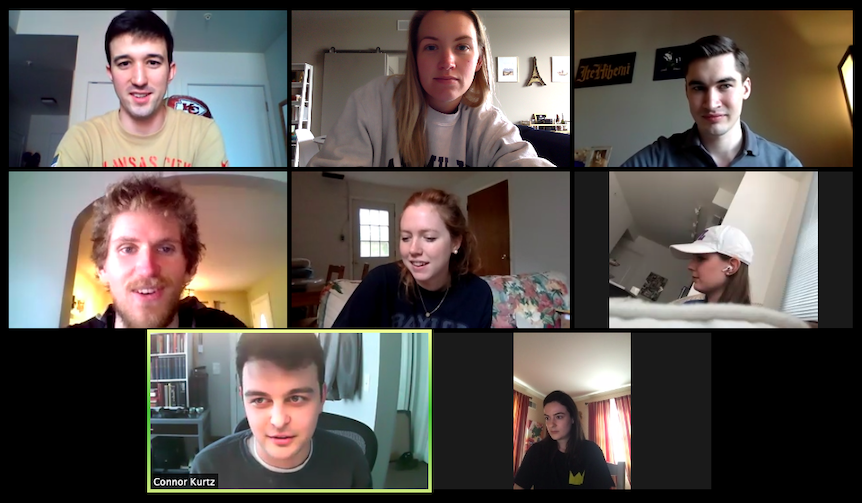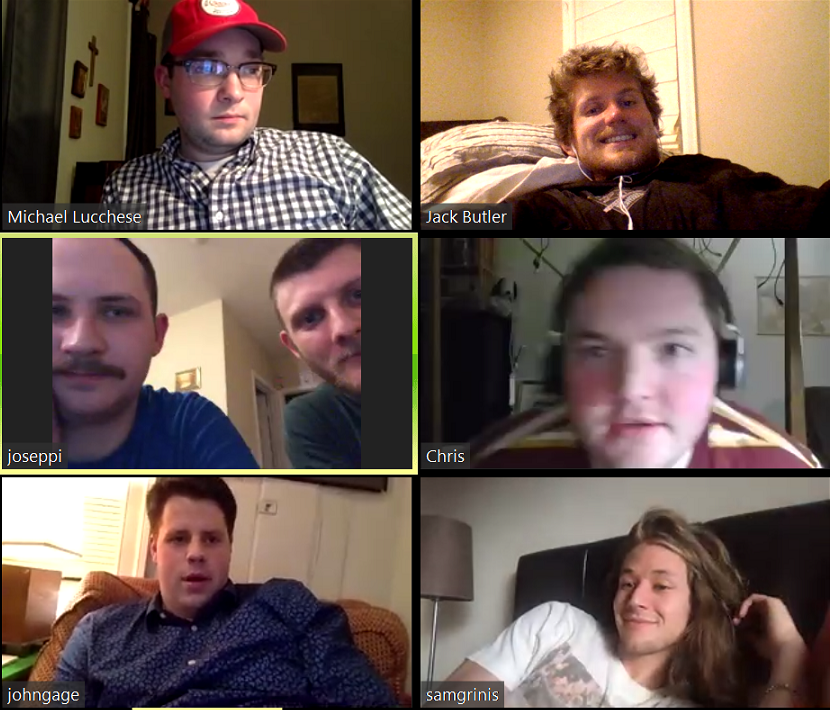 |
| Er...Jack Butler |
We shall not cease from exploration--T. S. Eliot, “Little Gidding”
And the end of all our exploring
Will be to arrive where we started
And know the place for the first time.
It is a trope in culture, high and low, for great journeys to end in some way or another where they started. Common enough, at any rate, for Joseph Campbell to have identified “the return” as part of his monomyth, the hero’s journey by which one accepts a call to adventure, leaves the known behind, endures significant hardship, accomplishes great things, and, eventually, is reacquainted with something like old life but forever changed by the experience. Just think of your favorite books or movies and it will be hard to come up with something that doesn’t somehow bookend. Campbell’s attributes are general enough to be applied to virtually anything, which has always been a problem with them (at least for me). But it is hard to deny that they capture a certain universality.
It can be risky to try to think of one’s own life literarily. The real world is rarely, if ever, as pat as a work of fiction. We naturally think of ourselves as the protagonists of our own lives, but our world is full of protagonists whose lives constantly intersect with one another. If it’s true of all of us, can it really be said to be uniquely true of any of us? To think of life literarily also risks delusion; imagining oneself as the “hero,” in search of evil to vanquish or quests to complete can lead to a life in which anything even approaching the workaday seems like a hindrance at best – or, at worst, a condescension of sorts, a reminder that one’s life somehow fails to measure up. It can also distract one from realizing the greatness and the wonder in the everyday.
And yet, with all of those qualifications – I certainly do not see myself as a Campbellian “hero” – I cannot help but to think of the past few months of my life in something like this fashion. For at a time of great disruption, a unique combination of circumstances prevailed to return me to places where I began. I bring this up not to brag, obviously, but to show my gratitude, and to provide an account of what has occurred in my life since last anyone who cares to has heard from me.
***
In March, I provided an account of my early reckoning with the disruptions of life from coronavirus: the steady creeping of concern over the disease that accompanied the first weeks of my life in New York (where I had just moved); my quick departure from that city; and the first days of my time back home in Cincinnati. I came there having no idea how long I was going to stay. It ended up being four months, during which time coronavirus and measures to mitigate it affected the lives of virtually everyone in America (and the world), much as I feared they would when I rapidly exited New York City. Even though nowhere was a true refuge from all of this, I considered myself fortunate to be able to ride it out among family, in a place I knew better than any other.
I occupied my time back at home in various ways. Working, obviously, mostly in a basement of which I came to grow quite fond. Running, unsurprisingly, though less than I would have liked; the vanishing of the prospect of racing deprived me of motivation more than I expected. Reading, of course, though, again, less than I would have liked. Videochatting regularly with friends, and – occasionally – even interacting with a select few in person (!), mostly outdoors. Hanging out in downtown Loveland, whose wide array of outdoor environs made it an ideal place just to be. Playing Star Wars Battlefront 2, a copy of which I acquired early on during this period, allowing me to play a game I never did when it originally came out (made in cooperation with . . . Pandemic Studios!). Letting my beard grow out (then shaving it). Occupying myself with various projects, including the creation of my own version of the opening of Season 2 of LOST (coronavirus life bore a certain resemblance to the Hatch-bound existence of Desmond Hume).
 |
| Working in the basement |
 |
| With the parents |
And so it did. Thus, my departure from my real home precipitated a return to a place that I adopted as one: the apartment in the city that I have come to know better than anywhere other than that real home. Besides the symmetry of this, there was a certain irony to it. When I left D.C. in February of this year, I thought it was permanent, or at least, that it would be a while before I returned in any meaningful capacity. This fact led me to pen a heartfelt valediction to the Swamp, a place I once hated in the way that many still do (and they are in many senses right to do so). But what I thought would be years turned out to be only a few months, virtually of which I spent at the only other place in the world I knew as well.
But it was not a matter of merely returning to Washington. First, I had to make a different return: to New York City, to move out of the apartment I moved into a mere six months before (and in which I had only actually lived for about six weeks). To do this, I flew back to the city, existed among the trauma it still faces from its outbreak, ran, worked, and otherwise spent all of my time packing up to leave. On the day of my departure, a few of the friends I had who remained in the city graciously came to my fifth-floor walk-up and helped me move my stuff into the van I had rented. One of these friends had helped me do the same on my way into the city – another bookend for a journey that seems to involve many. Upon that task’s completion, they left. And not long after, I did, on a journey that first for some reason took me through the heart of the city – a place I had not spent much time during my brief return – but then placed me on the same route I had traveled in February but in reverse. There and back again, a Butler’s tale.
 |
| I took this moments before leaving my NYC apartment |
I returned to the house I had left in February around 4:30 pm, not having stopped on the trip. It was locked and appeared empty when I arrived, though my worries were quickly allayed in that respect. The first words I said to the roommate who greeted me were, “Well, I’m back,” which are the last words in Lord of the Rings: Return of the King. When I left in February, the last words I had said to this same person were, “I will not say: Do not weep: For not all tears are an evil,” another famous closing quote from the same work. Yes, perhaps I am falling into my own advised-against path of an over-literary life; or perhaps I am just trying to create little literary moments of my own. There’s no harm in that, I don’t think.
 |
| Some more symmetry for you |
***
But I do not think this is merely a return to the status quo ante. It can’t be, not according to the Campbellian monomyth. And for all my problems with it, and for all my warnings about trying to live too literary a life, I think that literary trope applies here. My returns to my literal and figurative homes did not simply make me the same person I was the last time I was at either of them. As is often the case in my life, this reality was reinforced for me by music: two songs that inserted themselves into these experiences in two distinct ways whose import seems more than merely accidental.
Near the end of my time in Loveland, I was packing my things. Though I spent most of my time working in the basement, I slept upstairs. Though I did not sleep in what was my bedroom, which for complicated reasons has simply turned into a storage area for my life's accumulated detritus. I was playing some music while I did this on Spotify shuffle play. As I walked into what was my bedroom for the last time before departing, I heard the following lyrics from Arcade Fire’s “Neighborhood #1 (Tunnels)”:
But sometimes, we remember our bedroomsFor all the time I lived in that room, I had never listened to that song there. It comes from Arcade Fire’s first album, Funeral, which is mostly about what it’s like to grow up, to realize you’re not a kid anymore, and to confront the meaning of aging and adulthood for both yourself and those around you. I shouldn’t need more explanation to convey why happening to hear that as I walked into my childhood bedroom bore more meaning than a typical listen.
And our parents' bedrooms
And the bedrooms of our friends
Then we think of our parents
Well what ever happened to them?
The other moment of musical meaning came in the final moments of my drive back to my D.C. apartment. Having resorted to the radio after my phone had died, I was channel-surfing when U2’s “I Still Haven’t Found What I’m Looking For” came on. Of course, I had to listen. This standout track from U2’s most famous album, Joshua Tree, describes a powerful spiritual longing that afflicts all of mankind, an unconquerable striving for more that humans can find difficult to fill. Often when I have heard this song on the radio in my life, it seems to come at moments when I am unsure of my direction – or perhaps I am always a bit unsure, and hearing this song on the radio makes my overly-literary mind want to impose a significance to its playing that is not actually as present as I believe. Either way, it typically inspires in me an acute wistfulness, an inner ponderousness that makes me wonder about the course of my existence.
But not this time. For as I was hearing it this time, I was moving confidently forward, exactly in the direction I wanted to go: Back where I came from. And while I have returned, I do not think I am the same person I was when I left. I have been changed by my experiences, and have grown from them despite their relative brevity. And as most directly concerns my return to Washington, D.C., I come back here after having determined exactly what I like most about the city. I am not sure how long my time here now will last; I have no plans to move again any time soon. But I do not intend to make it a kind of “greatest hits,” doing only what I know I truly enjoy about the place. I will approach new experiences with an openness that comes from maturity, a wisdom that comes from experience – and an appreciation for where I have come from and what I have done that comes from gratitude and humility.
I have arrived where I started. I look forward to coming to know the place for the first time.














